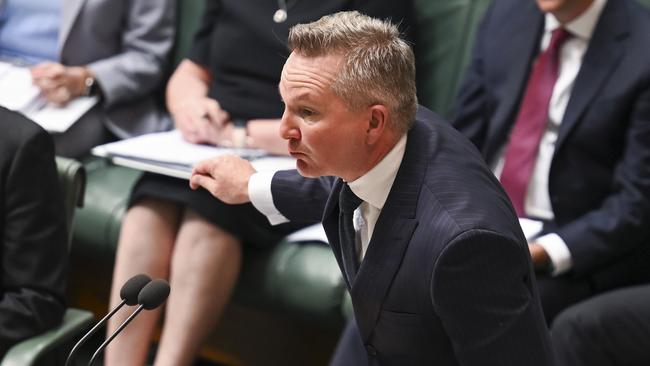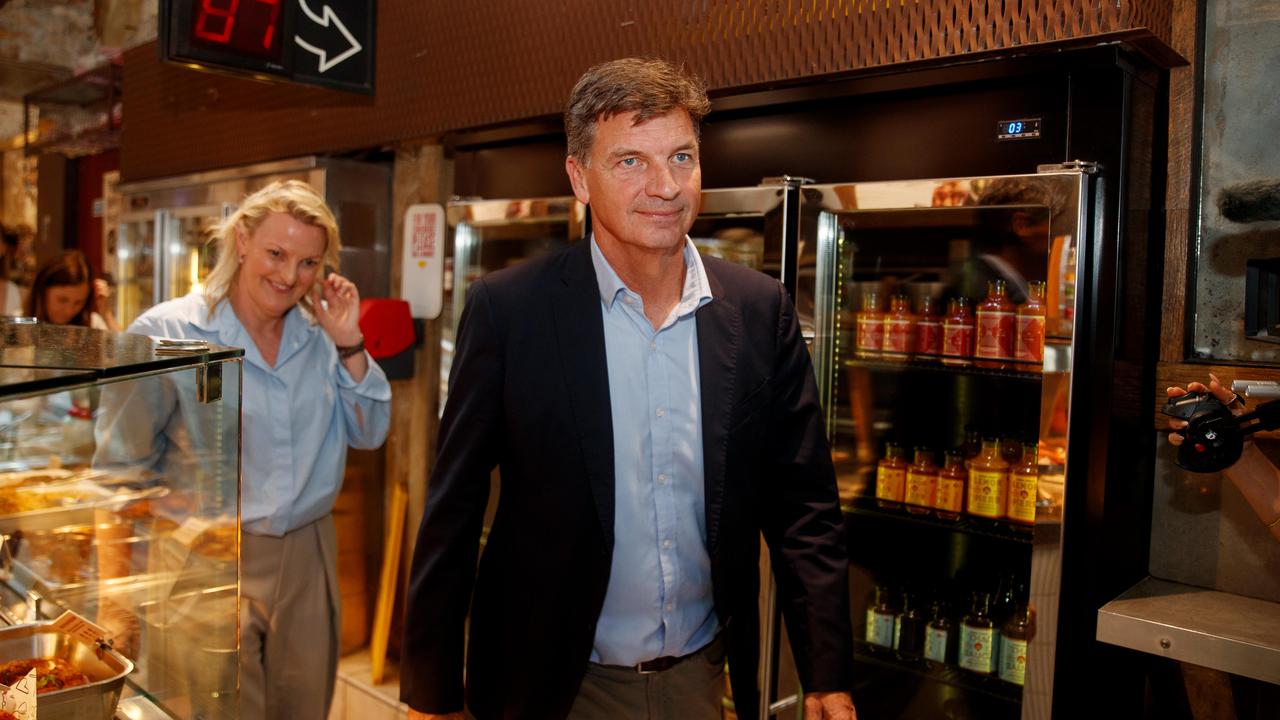Modelling secrecy as Chris Bowen fuel claims questioned
Chris Bowen and Catherine King are under pressure to release modelling underpinning disputed claims about overseas car models delivering greater fuel efficiency and guarantees new rules won’t drive-up costs.

Chris Bowen and Catherine King are under pressure to release $750,000 modelling underpinning disputed claims about overseas car models delivering greater fuel efficiency and guarantees new government rules won’t drive up costs for Australian motorists.
Analysis of publicly available information undermines Mr Bowen’s multiple declarations this week that Mazda CX30 models in Britain are “25 per cent more fuel-efficient” than similar vehicles in Australia. The most efficient British Mazda CX30 hybrid model, a manual car costing about $19,216 more than similar models in Australia, is almost 11 per cent more efficient.
Ramping up demands for Ms King and Mr Bowen to release ACIL Allen and GHD modelling commissioned last year, the Coalition, Greens and crossbenchers passed a motion in the Senate demanding cost impact analysis documents be tabled by noon Thursday.
The order to produce documents, moved by opposition transport spokeswoman Bridget McKenzie, calls for the release of all government modelling about the impact of the new fuel or vehicle emissions standards.
After Mr Bowen and Ms King on Sunday announced one-month consultation on the preferred model for a New Vehicle Efficiency Standard, some leading motoring industry groups and the Coalition warned the government was moving too fast. The government intends to legislate fuel efficiency standards in the first-half of the year, ahead of the new rules coming into effect from January 1 2025.
Asked on Monday why the government had not released modelling, Mr Bowen said “the full analysis” was released in their 80-page document.
“That’s all the analysis that the government has commissioned and that we’ve released. It’s got all the facts and figures there”.
Mr Bowen also said the British Mazda CX30 model was “25 per cent more fuel efficient than the model available here in Australia … so Australians are missing out on savings at the bowser regardless of what sort of car they choose”.
Ms King said there would be no impact on the price of cars, according to government modelling and impact analysis: “The international evidence is that it does not have an impact on price.”
On Wednesday, Mr Bowen said the “LNP needs to explain why they are against providing more choices and greater cost savings in annual fuel bills for people in their own electorates all around Australia”. “We have followed the same process the LNP did back in 2016, by commissioning a formal impact analysis based on economic modelling and releasing it to stakeholders for review and comment.
“Australian versions of the Mazda 2, Mazda CX-3, and Mazda CX-30 use 20-25 per cent less fuel than the most efficient UK variants. We want to make sure that Australians don’t keep getting left off the list of models that will save Australia’s the most at the petrol pump,” Mr Bowen said.
Senator McKenzie accused the government of “misleading the Australian public on the impact of Labor’s proposed vehicle emission standards”. “The Mazda model spruiked by Labor costs $19,000 more in the UK, and is less fuel efficient than claimed by Mr Bowen. It has also already been available for purchase in Australia,” Senator McKenzie said.
“Mr Bowen needs to guarantee that the price and availability of Australia’s top-selling SUVs, 4WDs and utes will not be impacted by this proposed policy.
“Until we see the assumptions and the modelling across all sectors of the Australian car market, we cannot know who will be the winners and losers as a result of this proposed policy,” she said.
Under the new rules, car makers such as Toyota, Ford and Hyundai face fines unless they lower the carbon intensity of their Australian fleets by more than 60 per cent by the end of the decade.
There will be a credit-trading system, with suppliers who beat the targets able to trade credits with those who fall short.




To join the conversation, please log in. Don't have an account? Register
Join the conversation, you are commenting as Logout